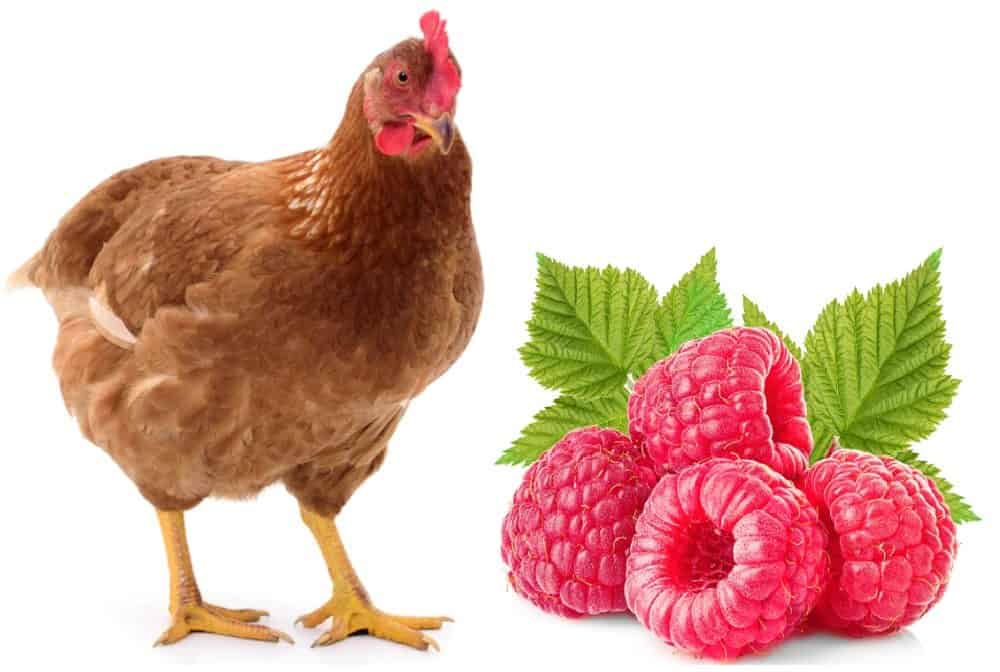Chickens are omnivorous animals and will eat a wide variety of food. This includes fruits and vegetables. Raspberries are a type of fruit that hens can eat without any problems. In fact, raspberries can be a healthy treat for chickens as they are packed with useful substances. If you are looking for a way to add some variety to your chicken’s diet, raspberries are a great option.
While there are no known negative side effects of feeding chickens raspberries, it is important to remember that they should not make up the majority of their diet. But let’s look into this question in more detail.
Raspberries and Their Health Benefits for Your Chickens
Chickens are known to enjoy foraging for berries, and raspberries are a great source of vitamins, minerals, and antioxidants for your flock.
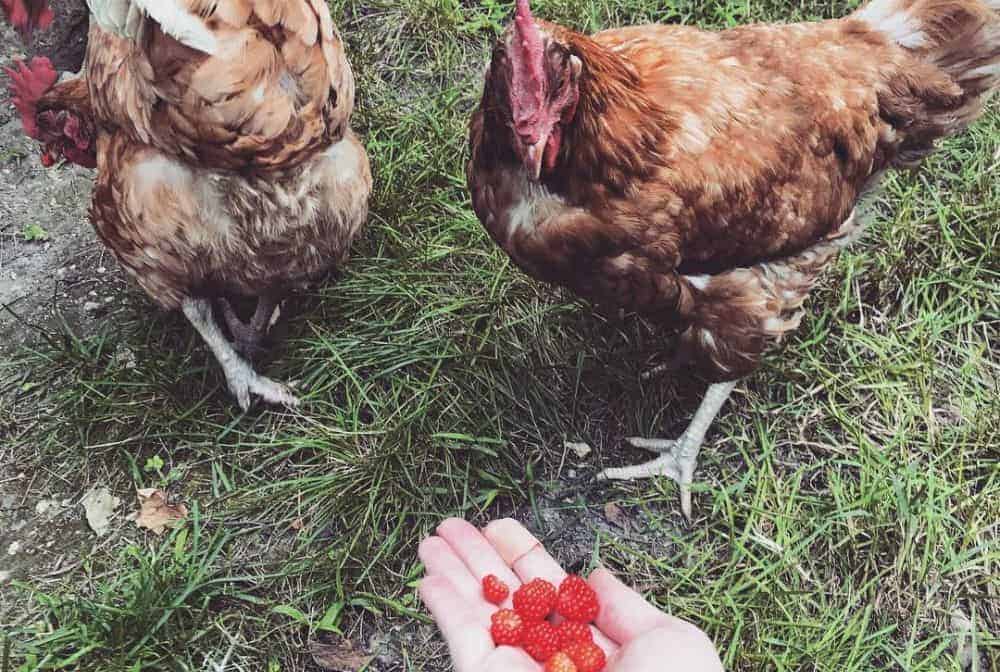
As we said before, raspberries are a good source of vitamin C, which helps boost your chicken’s immune system. Vitamin C is also an antioxidant, which means it helps protect your chicken’s cells from damage.
This berry is also a good source of manganese, which is important for bone health. Manganese is also involved in energy production and metabolism.
Finally, raspberries are a good source of dietary fiber. Fiber helps keep your chicken’s digestive system healthy and helps prevent constipation.
Here are some other health benefits of feeding to your chickens:
- Raspberries are also a good source of ellagic acid, which has been shown to have anti-cancer properties.
- The antioxidants in these berries can help protect your poultry cells from damage.
- It can also help keep your chickens’ feathers looking shiny and healthy.
How to Feed Raspberries to Your Chickens?
When it comes to adding nutrition to your bird’s diet, you can’t go wrong with raspberries. They are an excellent addition to your flock’s diet. Here are a few ways to add raspberries to your chickens’ diet:
1. Start With A Small Number Of Raspberries
Simply mix a small number of raspberries into your chickens’ feed each day. This is a great way to introduce raspberries to your poultry and get them used to the taste. If they seem to enjoy the raspberries, you can gradually increase the amount you give them.
2. Feed Raspberries Directly to Your Chickens
This is the easiest way to add raspberries to your chickens’ diet. Hens can eat both fresh and frozen raspberries. If you have fresh raspberries, you can simply put them in a bowl and let your chickens eat them. If you have frozen raspberries, you can thaw them first and then put them in a bowl. You can also add raspberries to your chickens’ feed.
An important moment for the chickadees of a chicken. Question asked by chicken owners — “Can baby chicks eat fresh raspberries and frozen ones?”
Fresh raspberries are a great source of vitamins and minerals for baby chicks. They are also a source of water. However, fresh raspberries can be messy and can cause diarrhea in baby chicks. If you do feed them fresh raspberries, make sure to monitor their stool and stop feeding them if they start having diarrhea.
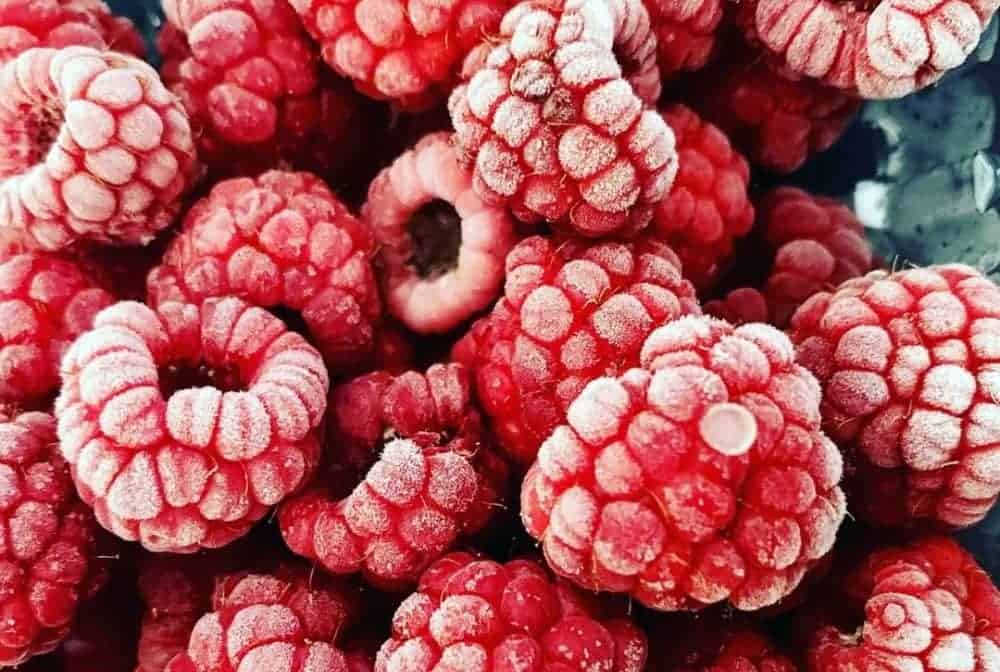
Frozen raspberries are a great alternative to fresh raspberries. They are just as nutritious and will not cause diarrhea in baby chicks. Frozen raspberries are also less messy and easier to store.
3. You Can Also Offer Raspberries As A Treat
If you have a treat ball or other treat dispenser, you can fill it with raspberries and let your chickens play with it. Make a raspberry treat. Mix together some raspberries, yogurt, and honey to make a delicious treat that your chickens will love. You can even add some chopped-up vegetables to the mix for an extra nutritional boost.
4. Add Raspberries To Your Chickens’ Water
Adding raspberries to your chickens’ water is a great way to keep them healthy and hydrated. Raspberries are packed with antioxidants and nutrients that can help boost the immune system and keep the body functioning properly. Adding raspberries to your hen’s water will also help keep them cool in the summer heat. Raspberries are a natural source of water and will help keep your chickens hydrated while they’re out in the sun.
5. Use Raspberries As An Incentive
If you’re trying to train your chickens to do something, you can use raspberries as an incentive. For example, if you want them to come when you call them, give them a raspberry when they come to you. They’ll soon learn that good thing happen when they listen to you!
6. Plant Raspberry Bushes In Your Chicken Yard
If you want to provide your chickens with raspberries year-round, you can plant raspberry bushes in your chicken yard. Raspberry bushes will provide your poultry with a steady supply of raspberries, and they will love scratching around in the bushes to find them.
7. Monitor Your Chickens’ Intake Of Raspberries
While raspberries are a healthy addition to your chickens’ diet, you should monitor their intake to make sure they’re not eating too many. Raspberries can cause diarrhea in chickens if they eat too many, so it’s important to keep an eye on them.
No matter which type of raspberry you feed your chicks, make sure to introduce them slowly to the fruit. Start with a few raspberries and increase the amount each day. This will help them adjust to the new food and avoid digestive issues.
How Often Can You Treat Chickens With Raspberries?
Too many raspberries can cause problems for chickens. Therefore, it’s important to limit the number of raspberries that poultry consume.
Raspberries are high in acid and can cause stomach problems in hens. Poultry can develop intestinal disorders and diarrhea if they consume a lot of berries
Raspberries are also high in sugar and can cause chickens to become overweight and obese. Poultry that eats too many raspberries can also develop diabetes. Too much sugar can also lead to liver and kidney problems in chickens.
Can Chickens Eat the Seeds and Leaves From Raspberry Plants?
There is no scientific evidence to support the claim that the seeds and leaves from raspberry plants are harmful to chickens. In fact, there is evidence that the seeds and leaves from raspberry plants can be beneficial to chickens.
The seeds and leaves from raspberry plants are a good source of vitamins A and C. They also contain antioxidants and other nutrients that can help chickens stay healthy.
There are a few things to consider before feeding your hens raspberry leaves and seeds, though.
First, make sure the plants are free of pesticides and other chemicals. You don’t want your chickens ingesting anything that could be harmful to them.
Second, the leaves can be a bit tough, so they may not be the best choice for younger birds.
However, there are a few things to keep in mind. First, the seeds can be a choking hazard, so make sure to chop them up before feeding them to your chickens.
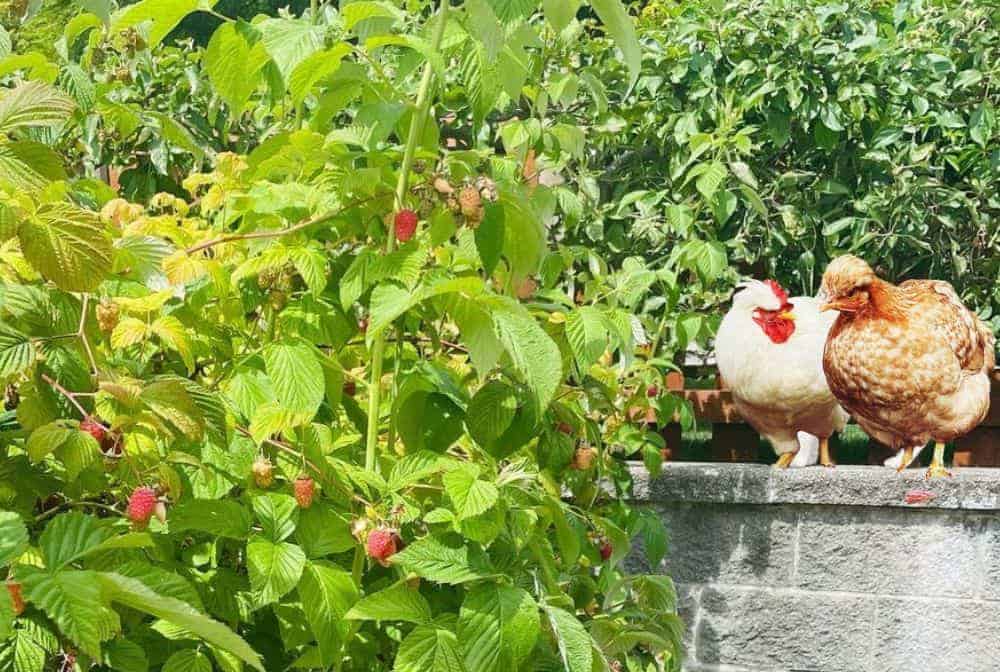
Overall, there’s no harm in letting your chickens eat the seeds and leaves from raspberry plants. Just be sure to take a few precautions and you’ll be fine.
Will Chickens Destroy My Raspberry Crop?
If you’re a backyard chicken keeper, chances are you’ve considered letting your chicken free range in your garden or yard at some point. After all, chickens are natural foragers and love to scratch and peck at the ground in search of bugs, grubs, and other tasty treats.
But if you’re thinking about letting your poultry free range in your raspberry patch, you might want to think twice. That’s because chickens can easily destroy your raspberry crop in a matter of days.
Here’s why: Chickens love to eat berries. In fact, they love them so much that they will often peck at and eat ripe berries before you even have a chance to pick them. And if you have a small raspberry patch, it won’t take long for your chickens to eat every last berry.
What’s more, it can also damage raspberry plants. When they scratch and peck at the ground in search of food, they can uproot young plants and damage established ones. This can stunt the growth of your raspberry plants and reduce your crop yield.
However, your poultry help keeps your raspberry crop healthy by eating pests that would otherwise damage the plants.
FAQ on Raspberries for Chickens
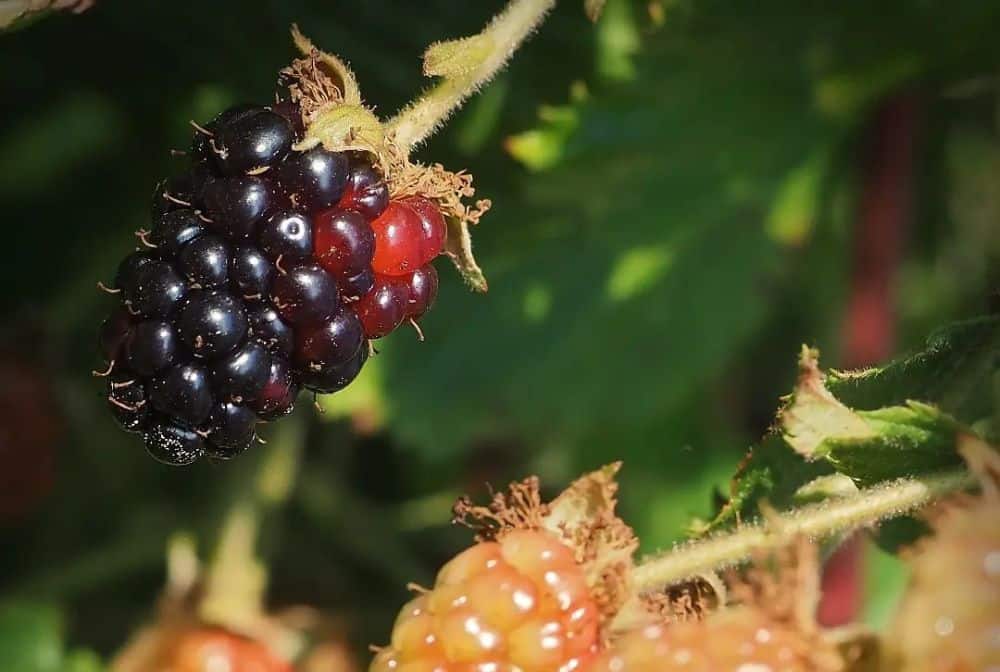
Can chickens eat black raspberries?
Chickens can most definitely eat black raspberries! In fact, they love them. These berries are high in fiber, which helps hens with their digestive system, and are also a good source of vitamins. Poultry can eat both the fruit and the leaves of black raspberries, so if you have a black raspberry bush in your yard, your chickens will be happy to help you keep it trimmed!
Can chickens eat moldy raspberries?
Believed that chickens should not eat moldy fruit because it can make them sick, but this is not necessarily true. Hens are able to eat moldy fruit without getting sick, and in fact, it can be beneficial for their health. Moldy fruit contains a higher level of antioxidants than non-moldy fruit, and these antioxidants can help to boost the immune system and protect against diseases.
Can chickens eat blueberries?
Hens are able to eat blueberries without any problems. Is a fruit that is safe for poultry to eat. Chickens can eat both the flesh and the skin of the blueberry. The blueberry is a good source of vitamins and minerals for chickens.
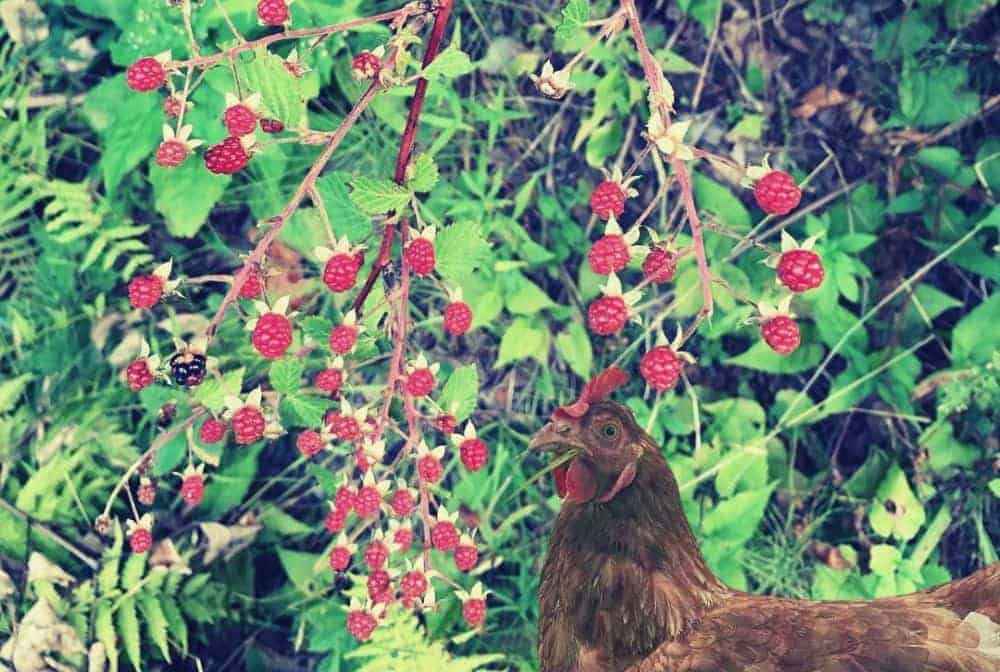
Closing Thoughts
In conclusion, now you know the answer to the question: can chickens eat raspberries and blackberries? Raspberries are a nutritious and delicious treat for your chickens. Raspberries are a great way to add some variety to your chickens’ diet. Not only are they a good source of essential vitamins and minerals, but they also contain antioxidants that can help boost your chickens’ immune systems.
Hens can eat both the raspberry fruit and the leaves. But, too many can cause problems. It’s important to monitor how many raspberries your poultry are eating and to provide other healthy food options as well.
Sources:
- Manganese in poultry nutrition and its effect on performance and eggshell quality, Cambridge University Press: https://www.cambridge.org/core/journals/world-s-poultry-science-journal/article/abs/manganese-in-poultry-nutrition-and-its-effect-on-performance-and-eggshell-quality/6BEF615BD07531E2E18B47C4292A3870
- Nutrition for Backyard Chicken Flocks, The Alabama Cooperative Extension System (Ken Macklin and Joe Hess) : https://www.aces.edu/blog/topics/farming/nutrition-for-backyard-chicken-flocks/
- Avian immune system, From Wikipedia: https://en.wikipedia.org/wiki/Avian_immune_system
